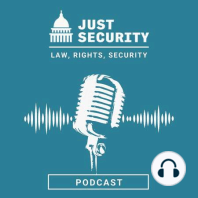28 min listen
Spies, Balloons, and International Law
ratings:
Length:
20 minutes
Released:
Mar 10, 2023
Format:
Podcast episode
Description
Last month, a mysterious object appeared in the sky over Alaska, Idaho, and Montana. U.S. officials determined it was a “spy balloon” sent by China to gather intelligence. Chinese officials insisted the balloon was just gathering information on weather patterns. But the incident caused a diplomatic snafu. Secretary of State Antony Blinken said that Chinese actions violated U.S. sovereignty – the idea that a country’s land, air, and waters belong to it – and broke international law. That’s a big deal because international law tells countries how to behave, sort of like how traffic lights and speed signs tell drivers when to turn and how fast to go. But what does international law actually say about spying? To answer that question, we have Asaf Lubin. Asaf is a law professor at Indiana University and an expert on international law and espionage. Show Notes: Asaf Lubin (@AsafLubin) The “spy balloon’s path and timeline of the U.S. and Chinese responses 6:40 Asaf’s article “The Liberty to Spy” 19:35 NYU’s American Journalism Online ProgramMusic: “The Parade” by “Hey Pluto!” from Uppbeat: https://uppbeat.io/t/hey-pluto/the-parade (License code: 36B6ODD7Y6ODZ3BX)Music: “Crafty Crime” by Jonny Boyle from Uppbeat: https://uppbeat.io/t/jonny-boyle/crafty-crime (License code: VAPNGQCYJOSVCEG4)
Released:
Mar 10, 2023
Format:
Podcast episode
Titles in the series (65)
United States v. Trump: A Model Prosecution Memo for Mar-a-Lago by The Just Security Podcast
